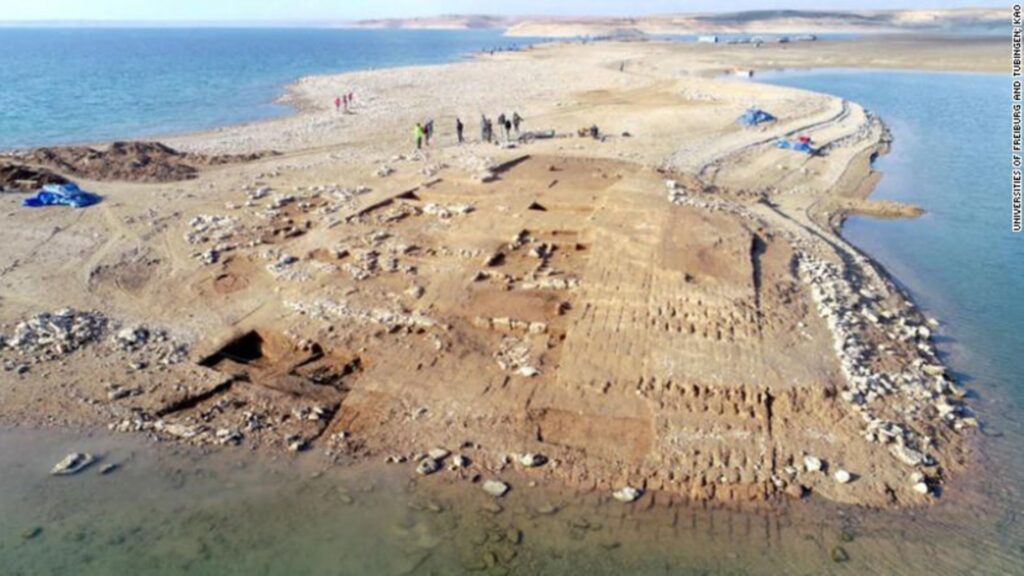After an extreme drought in Iraq has shrunken the Tigris River, an ancient city that was underwater for decades has emerged. The city is believed to be Zakhiku, which was a major hub for the Mittani Empire which reigned from 1550 to 1350 BC. The city had been submerged in the 1980s when the Iraqi government built the Mosul Dam.
This is not the first time lower water levels have revealed the city, in 2018 researchers were able to document a Palace. However, this most recent exploration has revealed much more about the city. Kurdish and German archeologists worked together in the Kurdistan region of northern Iraq in January and February to excavate the settlement,
Some of the discoveries made this time include fortification with towers and walls, as well as a storage building that is multiple stories tall. Archeologists say most of the structures were built using sun-dried mud bricks which would normally not last long underwater. Due to an earthquake that occurred around 1350 BC, many parts of the walls collapsed and covered the buildings.
Researchers had to move quickly while gathering information about the city, as it was expected the water levels would rise again soon after. Ivana Puljiz, a junior professor in the department of near eastern archeology and Assyriology and the University of Freiburg in Breisgau, Germany said they worked in all kinds of conditions to race against time. “We dug in freezing temperatures, snow, hail, rain, and even storms, as well as the occasional sunny day,” said Puljiz.
The city has since resubmerged however it provided insight that could help researchers piece together more about the ancient civilization. Experts do not know much about the Mittani people, largely due to the fact that they have been unable to identify the city’s capital or discover any archives.
This time, however, they found five ceramic vessels holding over 100 clay cuneiform tablets dated close to the earthquake. Puljiz’s research team hopes that once deciphered they could provide more information about the city’s demise and the rise of Mittani rule in the area. It is hypothesized that these tablets are part of a private archive.
Before the water covered the city once again, the archeologists covered the ruins in tight-fitting plastic sheets in hopes of protecting the site from further water erosion. The artifacts that were excavated including the tablets are being held at the Duhok National Museum in Iraq.

